Abstract
The frequency of Down syndrome (DS) in infants of older fathers has been examined in two sets of data. The effect of maternal age was controlled by single years of age. Lack of tight control has been an important weakness of other studies on this subject. Data obtained in metropolitan Atlanta by an intensive case-ascertainment program showed no overall excess of DS infants born to older fathers. Nor was there evidence of such an effect in recent birth certificate data made available by the National Center for Health Statistics. The Atlanta data suggest an increased number of DS infants born to older fathers who had children by women less than or equal to 34 years. However, there was a small deficiency of DS infants born to older fathers by women greater than or equal to 35 years. The possibility of a paternal-age effect remains open, but the available data suggest that, if it exists, it is quite small.
Full text
PDF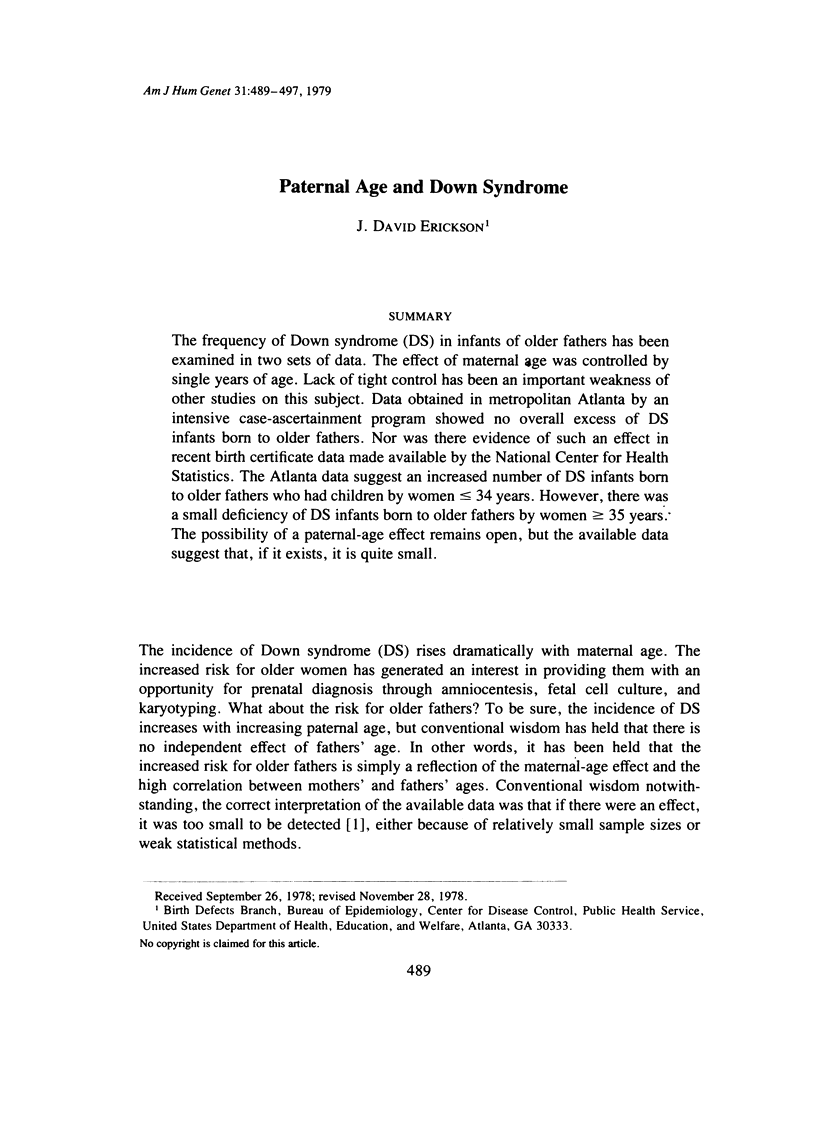
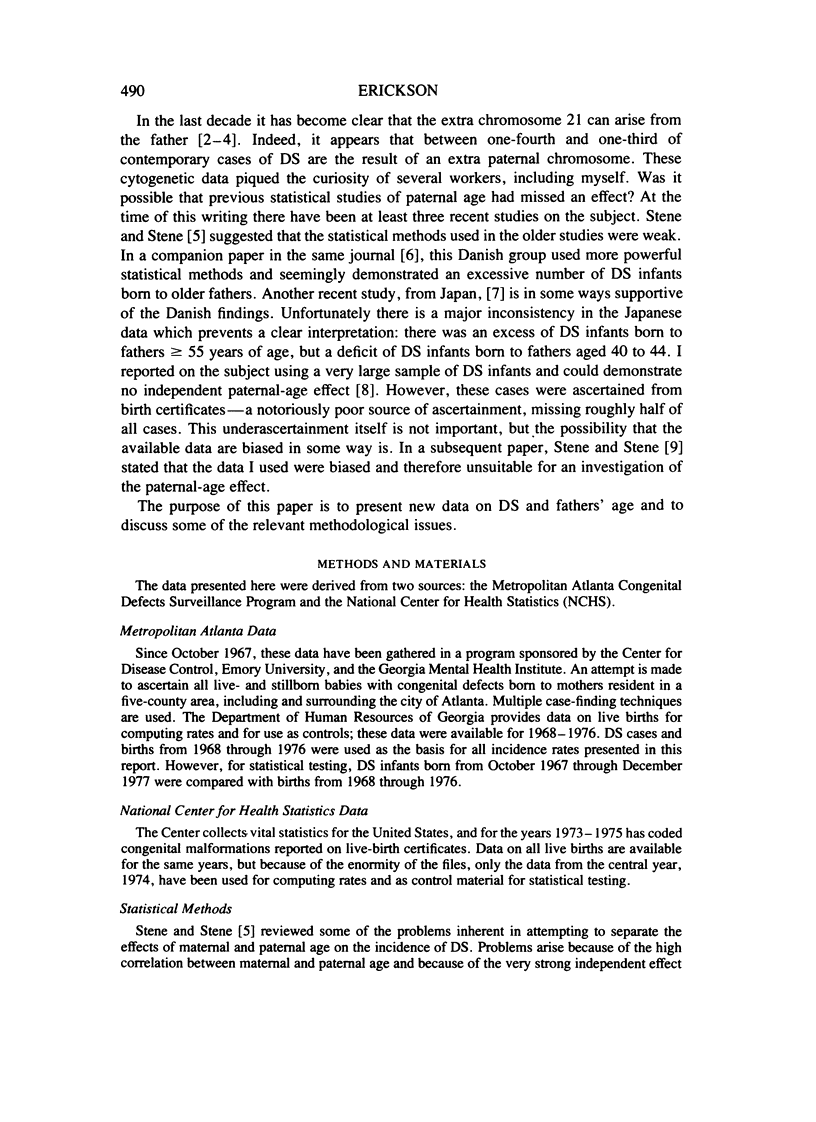
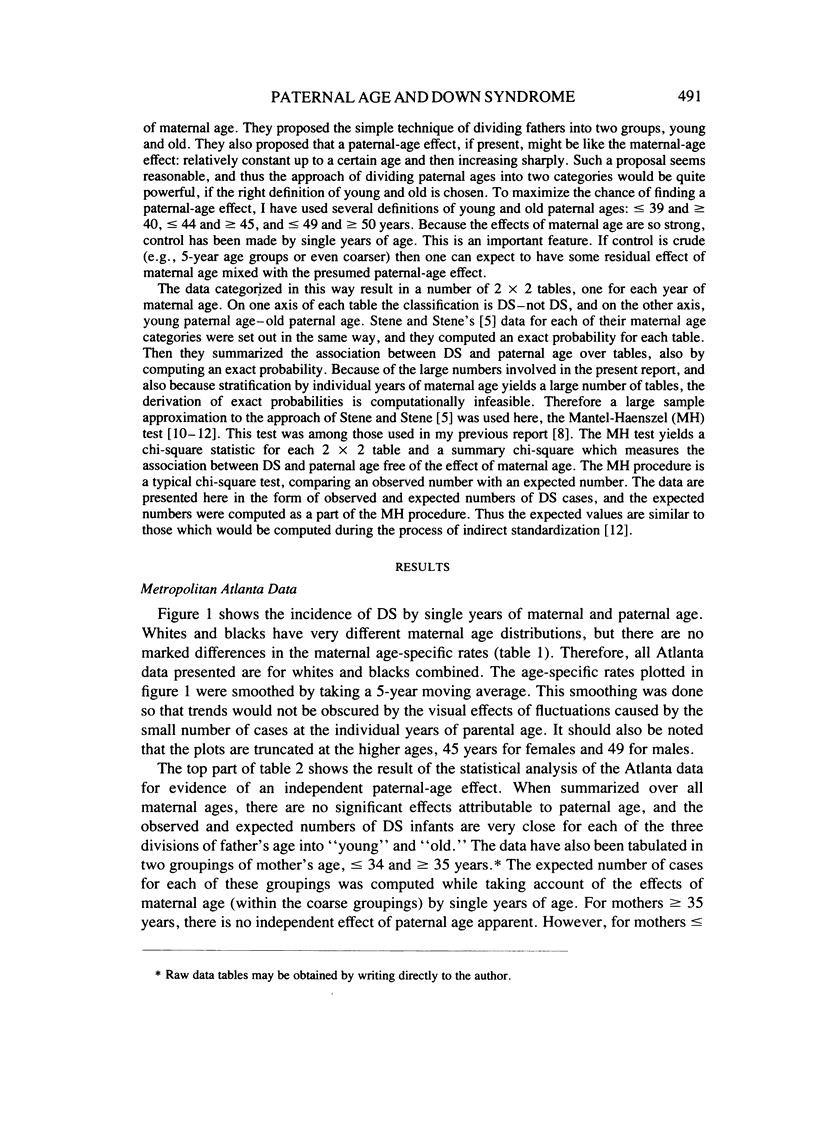
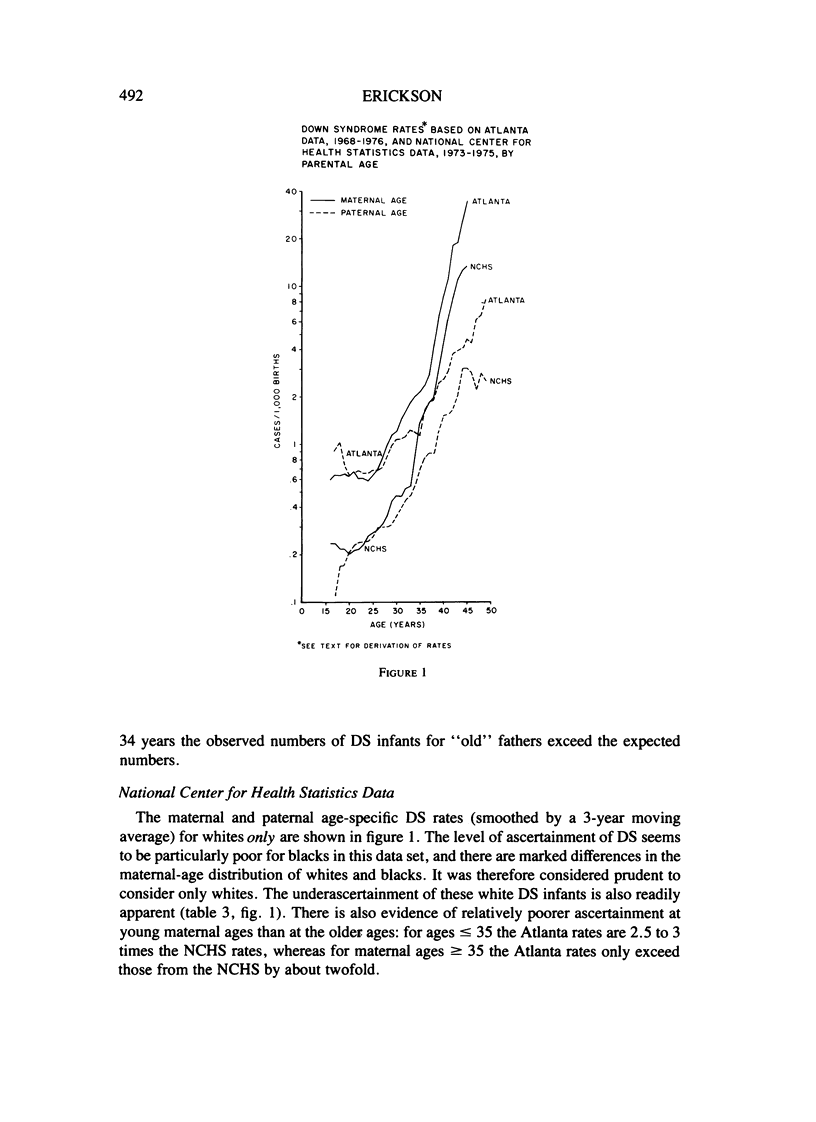
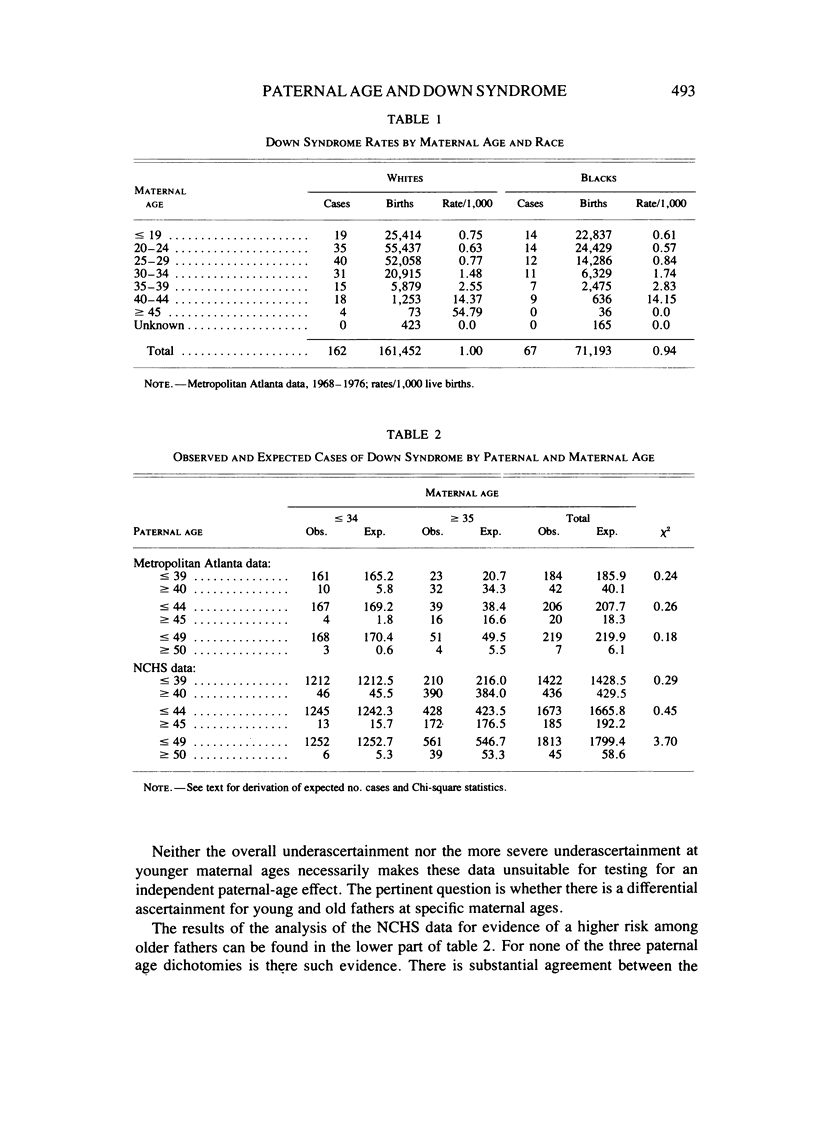
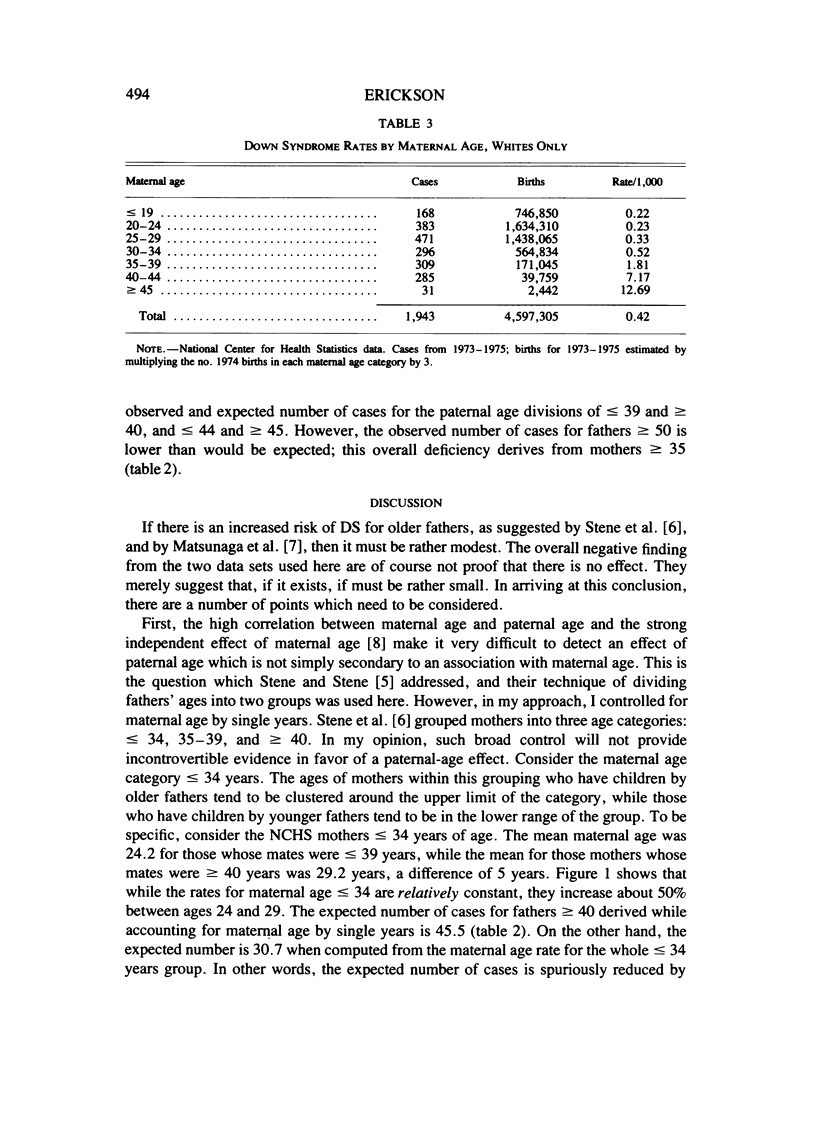
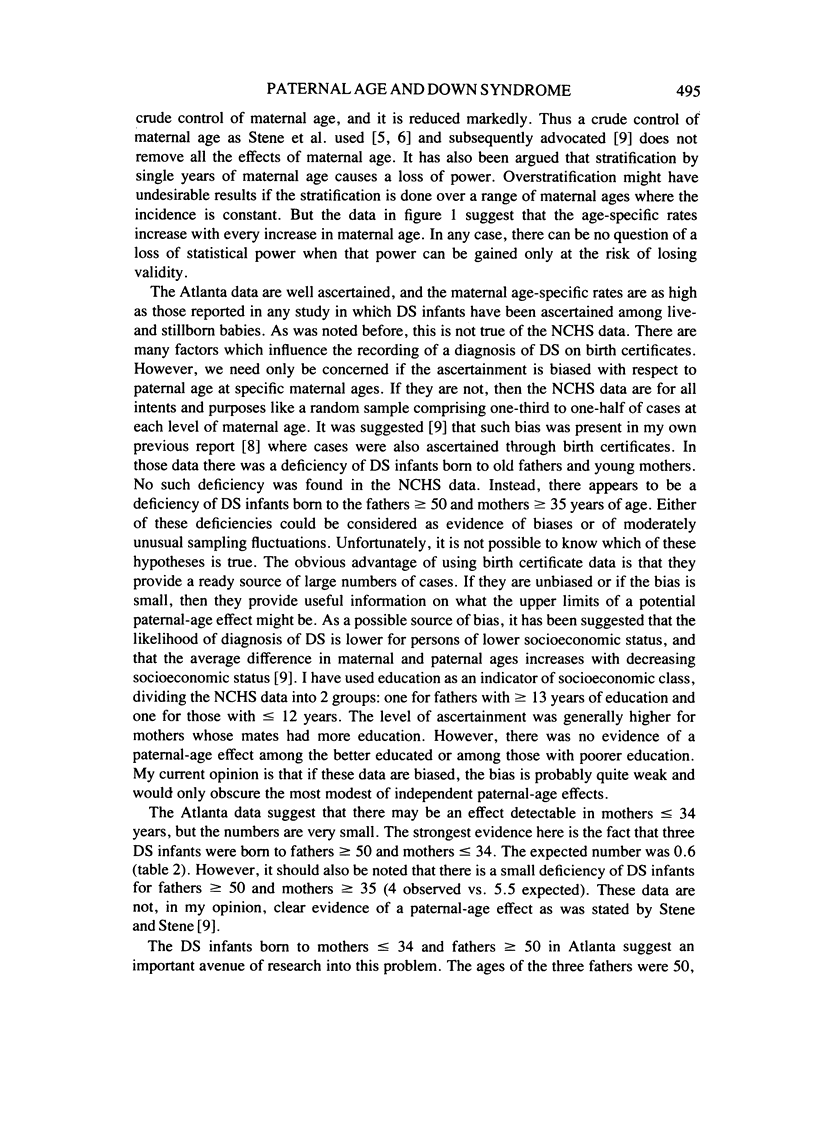
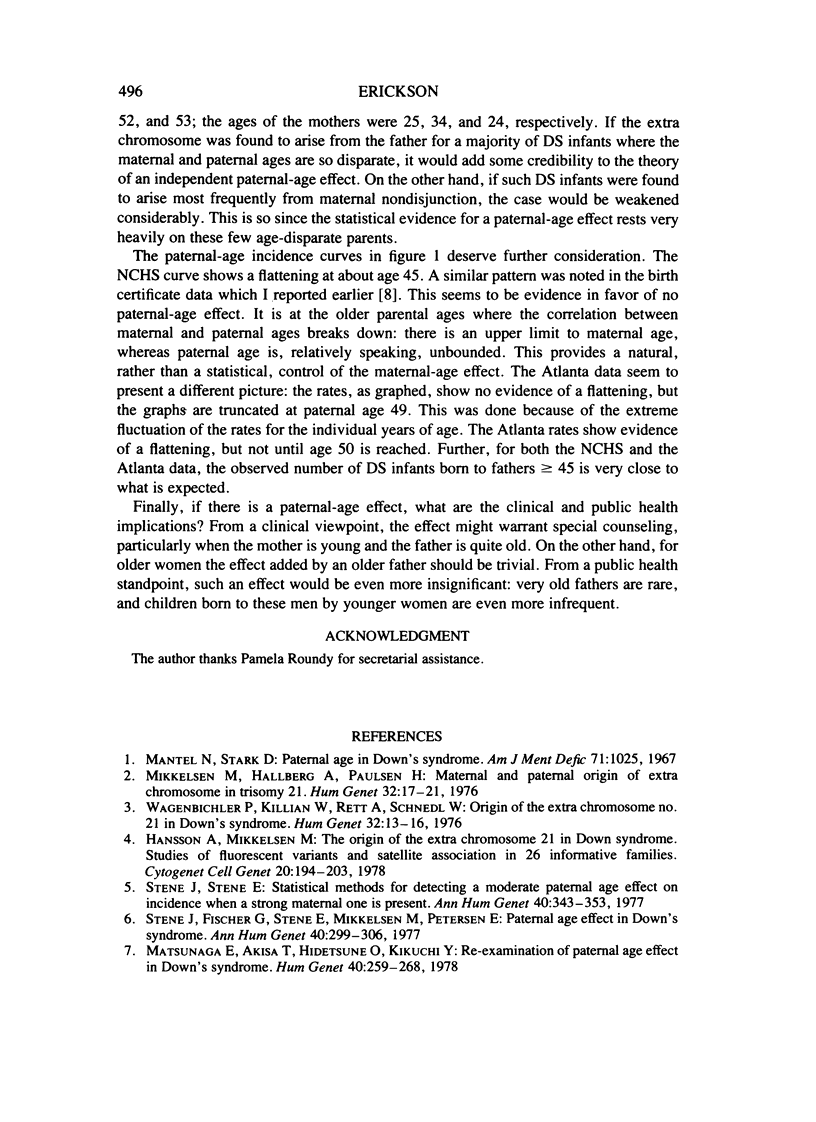
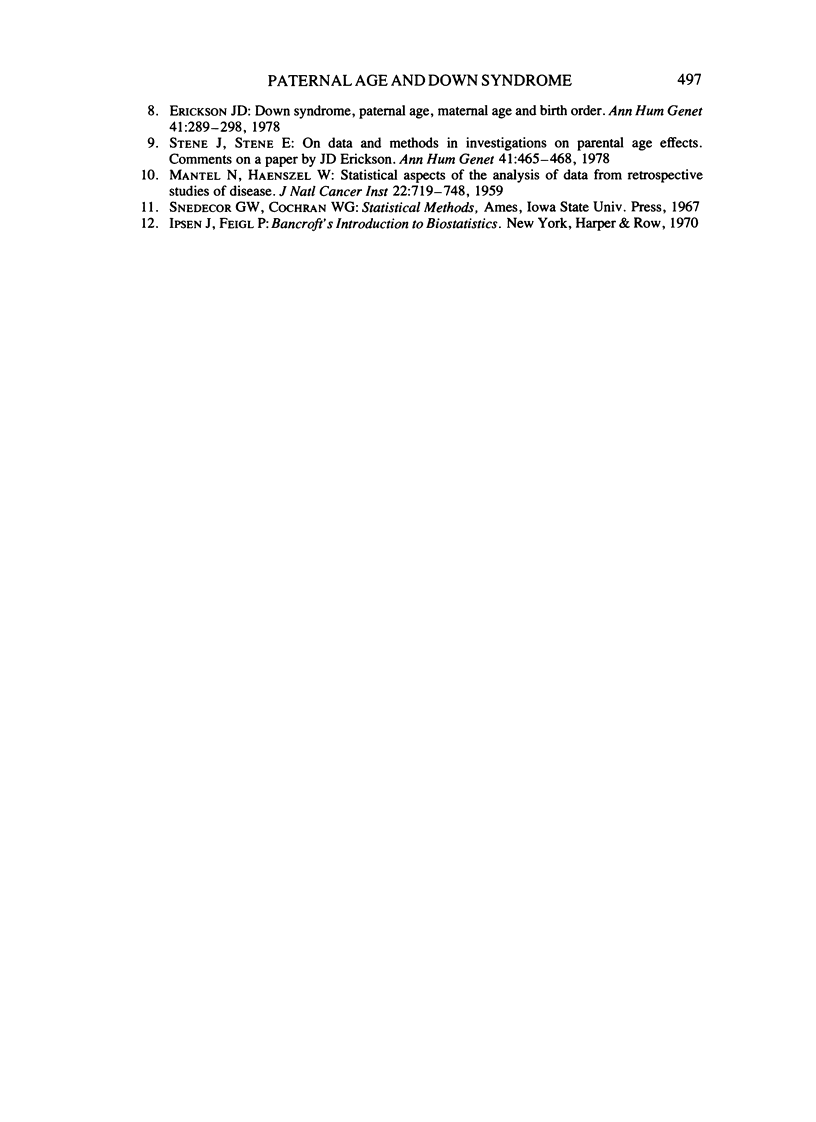
Selected References
These references are in PubMed. This may not be the complete list of references from this article.
- Erickson J. D. Down syndrome, paternal age, maternal age and birth order. Ann Hum Genet. 1978 Jan;41(3):289–298. doi: 10.1111/j.1469-1809.1978.tb01896.x. [DOI] [PubMed] [Google Scholar]
- Hansson A., Mikkelsen M. The origin of the extra chromosome 21 in Down syndrome. Studies of fluorescent variants and satelite association in 26 informative families. Cytogenet Cell Genet. 1978;20(1-6):194–203. doi: 10.1159/000130851. [DOI] [PubMed] [Google Scholar]
- MANTEL N., HAENSZEL W. Statistical aspects of the analysis of data from retrospective studies of disease. J Natl Cancer Inst. 1959 Apr;22(4):719–748. [PubMed] [Google Scholar]
- Mantel N., Stark C. R. Paternal age in Down's syndrome. Am J Ment Defic. 1967 May;71(6):1025–1027. [PubMed] [Google Scholar]
- Matsunaga E., Tonomura A., Oishi H., Kikuchi Y. Reexamination of paternal age effect in Down's syndrome. Hum Genet. 1978 Feb 16;40(3):259–268. doi: 10.1007/BF00272186. [DOI] [PubMed] [Google Scholar]
- Mikkelsen M., Hallberg A., Poulsen H. Maternal and paternal origin of extra chromosome in trisomy 21. Hum Genet. 1976 Apr 15;32(1):17–21. doi: 10.1007/BF00569972. [DOI] [PubMed] [Google Scholar]
- Stene J., Fischer G., Stene E., Mikkelsen M., Petersen E. Paternal age effect in Down's syndrome. Ann Hum Genet. 1977 Jan;40(3):299–306. doi: 10.1111/j.1469-1809.1977.tb00194.x. [DOI] [PubMed] [Google Scholar]
- Stene J., Stene E. On data and methods in investigations on parental-age effects. Comments on a paper by J. D. Erickson. Ann Hum Genet. 1978 May;41(4):465–468. doi: 10.1111/j.1469-1809.1978.tb00917.x. [DOI] [PubMed] [Google Scholar]
- Stene J., Stene E. Statistical methods for detecting a moderate paternal age effect on incidence of disorder when a maternal one is present. Ann Hum Genet. 1977 Jan;40(3):343–353. doi: 10.1111/j.1469-1809.1977.tb00198.x. [DOI] [PubMed] [Google Scholar]
- Wagenbichler P., Killian W., Rett A., Schnedl W. Origin of the extra chromosome no. 21 in Down's syndrome. Hum Genet. 1976 Apr 15;32(1):13–16. doi: 10.1007/BF00569971. [DOI] [PubMed] [Google Scholar]


